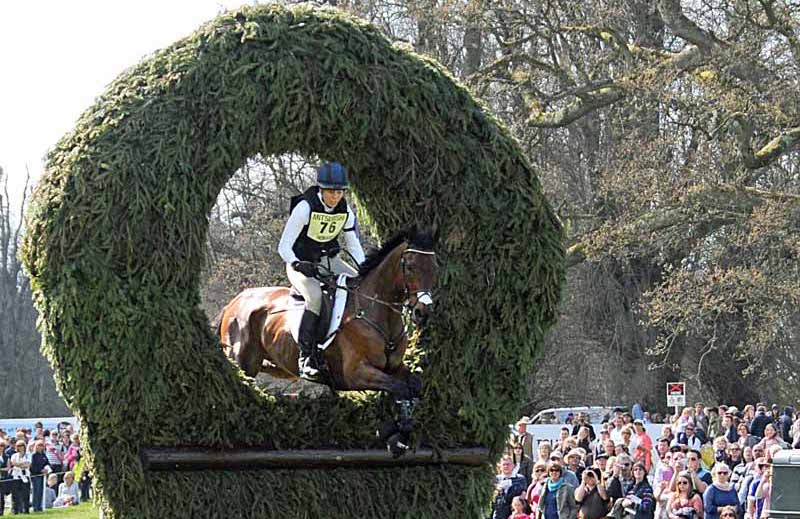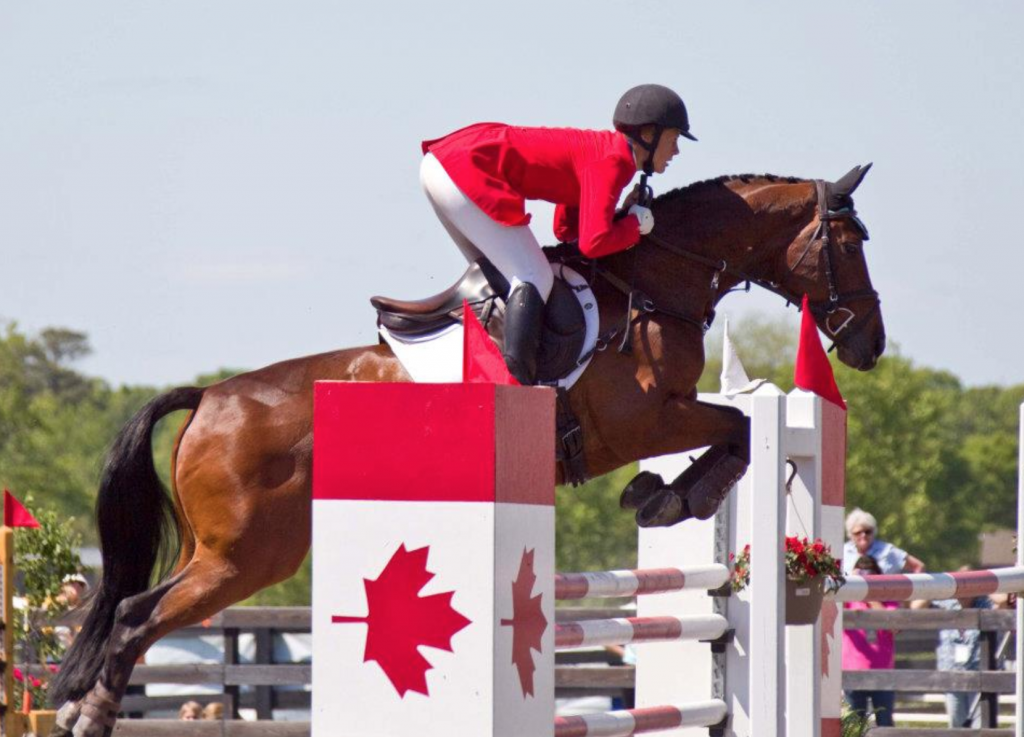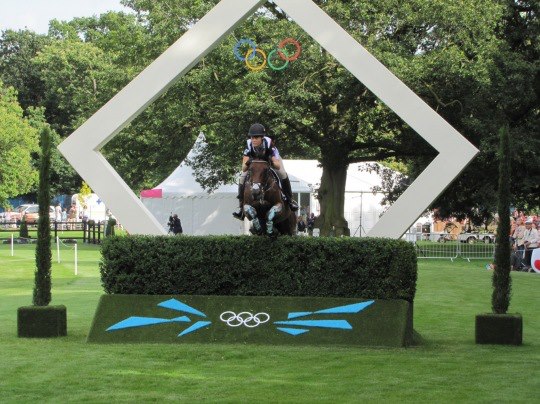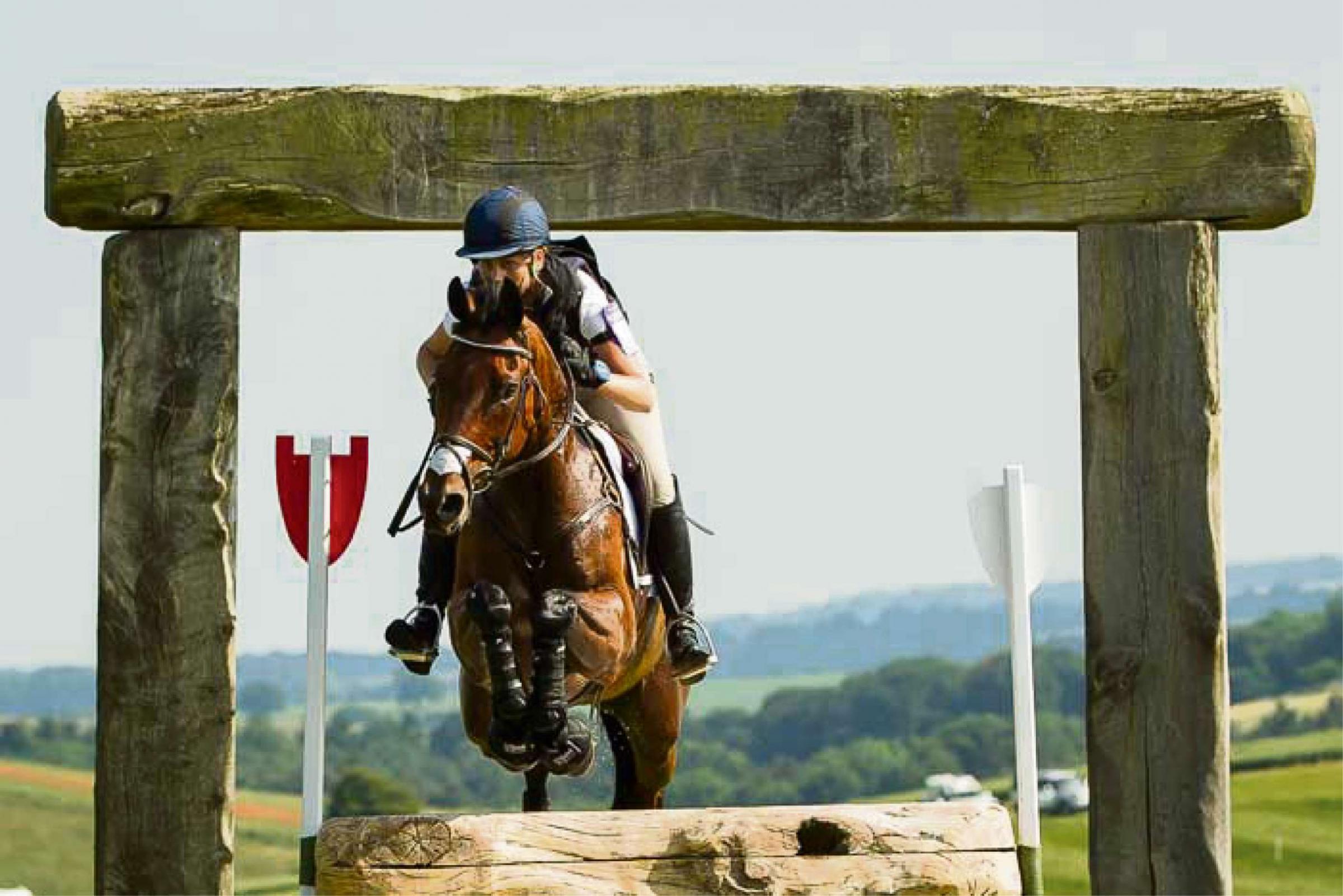Chatting to two-time Olympian Rebecca Howard, she’s mildly concerned about being “kind of boring”. “I had a lot of interests as a young kid,” she explains “but I’d always pick one or two key things rather than just do a bit of everything, and as I got older that became just horses. Often people ask if I have other interests, and I think god, I must be kind of boring really.”
It’s actually quite difficult to ever see the 38-year-old athlete as boring though. As well as appearing at both London 2012 and Rio 2016 – the latter of which she placed 10th at, making her the top female eventing rider of games – she’s also competed in top British events such as Badminton and Burghley. This alone is noteworthy enough, but she’s also got some more unexpected habits – including shunning all alarm clocks.
The horse rider has a more practical approach to human rights though. Talking to me after finishing her latest event she explains how they’ve helped shape both her career and views on everything from equality in sport to dignity when dying.
What did you want to be when you grew up? Was it always to do with horses?
I think that it’s evolved. Certainly, where I grew up – in a small town in British Columbia – horses were in my life for as long as I can remember. It was certainly a passion early on. What that actually meant to me changed as I learned more and as the world of horses got bigger.
It was very much ponies and kids at the beginning and then I started to realise there were bigger things and I kept wanting to keep taking the next step until I realised I could take it to the level that’s going all the way to the top.
 Image Credit: Ross Elliot / Flickr
Image Credit: Ross Elliot / Flickr
Do you feel like you get a connection with your horses?
I think horses are like people, they’re all so different and individual and require and like different things. That’s certainly part of the interest and skill and enjoyment of working with them and figuring it out. The more you connect with them the more successful you can be and the more enjoyable it is. It’s very much a relationship based thing.
How did your formal education shape you? Or was it other things that got you to where you are now?
Other things for sure. I wouldn’t describe myself as someone that finds a lot of things very easy, certainly not academics and athletically I always felt I wasn’t the most talented in the group. But I did have the work ethic and desire to keep challenging myself to be better. I think school taught me a lot of that.
What surprises people the most about you?
I don’t mind being late. So that kind of translates into, I don’t always set alarm clocks, I rarely do, I just tend to wake up. Even weird mornings where I need to wake up, it works for me most of the time. I did just miss a flight though last week though.

Image Credit: Rebecca Howard
What does freedom mean to you?
I’m certainly very much aware that it means something different to me than to other people in different parts of the world. I think for me it’s the freedom to pursue whatever you choose and develop the skill I have, and the ability to travel. The world doesn’t feel like it’s got boundaries, my destiny is a little bit more my own. Things are more in my control.
Describe a time you’ve been discriminated against
I’ve felt like I’ve been judged, like I’ve not been valued or believed, but discrimination, I don’t know if I can truly say I’ve been discriminated against.
In a broader sense, there are certainly other things which aren’t fair. Maybe sometimes as an athlete, other athletes don’t understand equestrian as a sport and [I’m] not being looked as a proper athlete. They don’t understand the sport, they think of it as more the horses. It’s one of the few sports where we compete on an equal level, there’s no difference between men and women, there certainly is equality.
What does ambition mean to you?
For me it’s related a bit to excellence, to push myself to be better, to be more productive, to accomplish more. Ambition drives excellence. Somebody has that want or desire to push themselves.

Image Credit: Rebecca Howard / Facebook
Describe one of your best memories…
Memory means something which was a while ago, and I’ve got such a bad memory! Maybe it was 2013, my first full year over here, where I got to compete at my first Badmintons and Burghleys. It was a pretty cool year.
I’ve also just been on an email frenzy with my sisters about a gift we are giving to my father which brought back a lot of memories of a peppermint machine in his store. There are really good peppermints in Canada, you can’t get them here. They’re better than Polos. Polos cannot compete. So between a peppermint machine and my Badmintons!
Nature or Nurture?
Well, both obviously, but I think nurture more. I think that people’s environments and their upbringing, parents, and place in the world you live – that has way more impact. It’s the same thing with the animals and the horses; a horse in one programme, or with one person, could really flourish but in another one, nothing. It could be dangerous.
What’s the most important thing your parents taught you?
That’s a hard one as I think I had pretty cool parents for sure. I think there’s like an awareness of people around me and a consideration of those. Both people and an appreciation of the outdoors.
I think the first step is just to notice people and be aware of how your actions affect others and appreciate them. My parents were pretty cool people, but there was also a respect they ingrained in me somehow.
 Image Credit: Rebecca Howard / Facebook
Image Credit: Rebecca Howard / Facebook
Do you ever check your privilege?
I think constantly, actually. I find myself very lucky to do what I’m doing and go to the places I go, you can be struck quite often. Also, I do have a strong need to feel like I’ve earned what I am or what I’m doing, so yeah, that’s always a bit of privilege check.
How are you changing the world?
Athletics is quite a focused pursuit and I’ll often ask myself this question of ‘how is this making the world a better place’. I think the answer, for me, all comes down to not so much relationships, but how I can affect other people – in some way motivate or inspire others and know you’ve touched or influenced somebody by pursuing what I’m pursuing.
Atheist, Religious or Agonistic?
Religion hasn’t played a big part of my life, at all. I find it quite fascinating how some people are driven and guided by it, but it’s not something I’m drawn too or makes day-to-day decisions for me.
What does dignity in dying Mean to You?
I think life should be about living not dying, so it’s really sad when somebody’s life becomes more about dying than it does about living. My grandmother passed away just six weeks ago and I would certainly wish on anybody that it happened the way it did for her.
She lived a healthy life to 96, literally living on her own. She was able to die in my mum’s care in her house, only six weeks going downhill, she got to paint her nails before she died and, you know, that’s obviously the ideal.
It becomes very sad if you lose control of the process and you can’t do anything. I can imagine it being tortuous if it’s a long drawn out painful process, whereas in my gran’s case it was around people that loved her and it was relatively very quick and painless and that’s ideal.
And… What is the meaning of life?
I think it’s got to be about relationships and connections made, being able to go out and live it. Doing what you want to do, but sharing it with people, having good relationships along the way.







